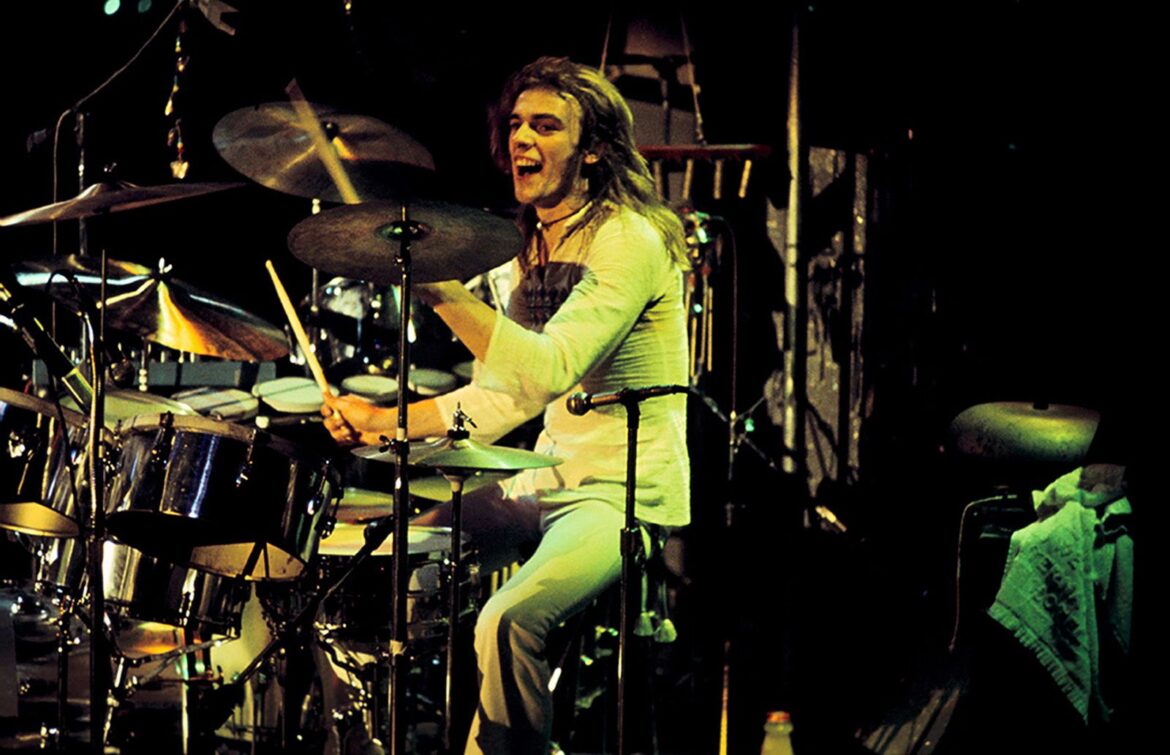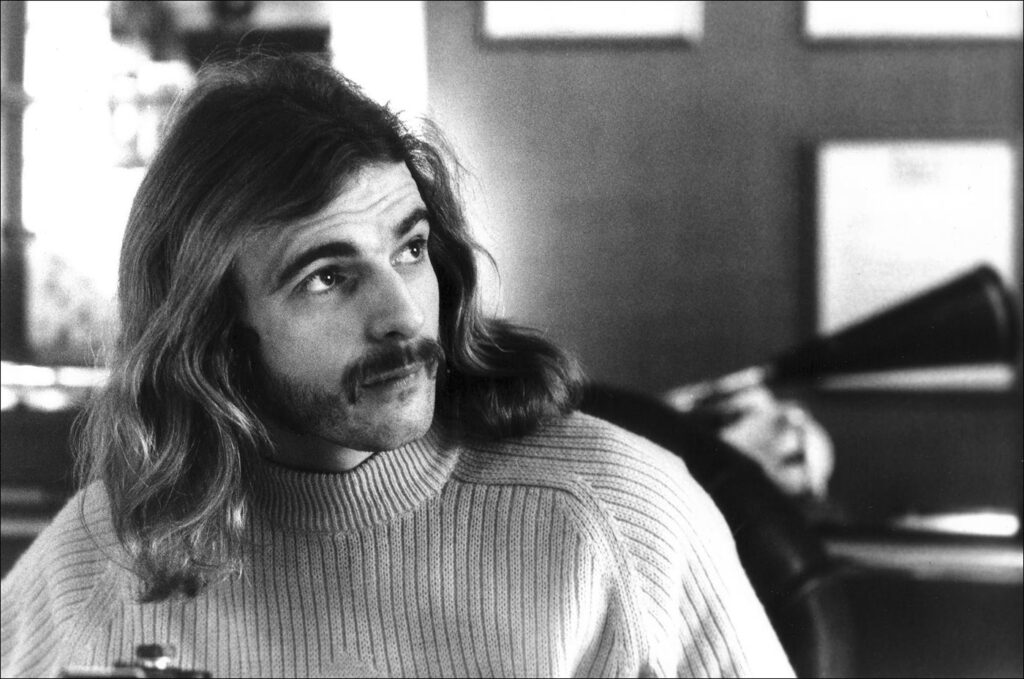
Alan White (June 14, 1949 – May 26, 2022) was an iconic English drummer and songwriter, best known for his nearly five-decade tenure as the drummer of the progressive rock band Yes. White’s contribution to music, especially within the realms of progressive rock and his role in shaping the sound of Yes, solidified his legacy as one of the most influential drummers in rock history. Over the course of his career, White’s musicianship was noted for its versatility, power, and creativity, which not only made him a fixture in the rock world but also led to collaborations with a wide range of legendary artists.
Early Life and Influences
Alan White was born in Pelton, County Durham, England, and grew up in Ferryhill, a small village near Newcastle. From a young age, White exhibited a passion for music, starting piano lessons when he was just six years old. His early musical foundation on the piano would later contribute to his understanding of musical composition and rhythm, although it wasn’t long before he found his true calling with the drums.
At the age of twelve, White’s uncle bought him his first drum kit, igniting a passion that would shape his future. His drumming influences ranged from jazz legends like Buddy Rich and Gene Krupa to rock and roll innovators such as Ringo Starr of The Beatles. These early influences helped White develop a style that fused technical virtuosity with a deep sense of musicality. He was equally comfortable laying down a steady rock beat as he was experimenting with complex, jazz-inspired rhythms. This eclectic musical background would later serve him well as he embarked on his career in progressive rock.
By the age of 17, Alan White had already begun performing in local bands and gaining experience in the vibrant British music scene of the 1960s. His early work in bands like The Blue Chips and Happy Magazine demonstrated his adaptability as a drummer, and his talent soon caught the attention of more established musicians.
Breakthrough with John Lennon and the Plastic Ono Band
One of the key turning points in Alan White’s career came in 1969 when he was invited by John Lennon to join the Plastic Ono Band. At just 20 years old, White was thrust into the spotlight, performing alongside some of the most influential figures in music history. Lennon had been introduced to White through mutual connections in the London music scene and was impressed by his drumming skills. As the story goes, Lennon made a surprise phone call to White, inviting him to play drums at the Toronto Rock and Roll Revival festival in September 1969. White initially thought it was a prank but soon realized it was a genuine offer.
Alaon White’s performance with the Plastic Ono Band in Toronto was a pivotal moment, as it introduced him to a global audience and solidified his reputation as a top-tier drummer. Alongside Lennon, Yoko Ono, and Eric Clapton, White played on the live album Live Peace in Toronto 1969, which captured the raw energy and spontaneity of the band’s performance. This experience not only elevated White’s profile but also opened doors for him in the rock world, leading to further collaborations with iconic artists.
Joining Yes: A Defining Moment
In 1972, Alan White was recruited by Yes, one of the leading progressive rock bands of the time. The band was known for its complex compositions, intricate time signatures, and virtuosic musicianship, and replacing their original drummer, Bill Bruford, was no easy task. Bruford had left Yes to join King Crimson, and the band needed a drummer who could not only replicate the complex parts Bruford had created but also bring his own personality and creativity to the music.
White joined Yes during a critical period in the band’s career, just as they were embarking on a major tour to support their album Close to the Edge. Remarkably, White had only three days to learn the band’s entire setlist, a feat that demonstrated his incredible musical ability and dedication. Despite the daunting task, White rose to the occasion, and his debut performance with Yes at the Dallas Memorial Auditorium in 1972 was a resounding success.
Over the next several decades, Alan White became an integral part of Yes, contributing to some of the band’s most beloved albums and performances. His first studio album with Yes was Tales from Topographic Oceans (1973), a sprawling double album that pushed the boundaries of progressive rock with its intricate, extended compositions. White’s drumming on the album was both powerful and nuanced, helping to anchor the band’s complex musical arrangements.
.
.
Key Contributions to Yes
Alan White’s drumming style brought a different flavor to Yes compared to his predecessor, Bill Bruford. While Bruford’s drumming was often described as precise and jazz-influenced, White’s style was more expansive, with a rock-solid groove and a penchant for experimentation. His drumming became a key element of Yes’s sound, especially in their live performances, where his ability to handle complex time signatures and improvisation was essential.
White’s contributions to Yes spanned nearly 50 years, making him the longest-serving member of the band. He played on iconic albums such as Relayer (1974), Going for the One (1977), Tormato (1978), and Drama (1980). His drumming on tracks like “The Gates of Delirium” and “Awaken” showcased his technical prowess, while songs like “Owner of a Lonely Heart” from the 1983 album 90125 highlighted his ability to adapt to more mainstream, radio-friendly rock styles.
One of Alan White’s most notable contributions to Yes was his work on the album Relayer, particularly the track “The Gates of Delirium,” a 22-minute epic that takes listeners on a musical journey through shifting moods and tempos. White’s drumming on this track is nothing short of remarkable, combining aggressive, bombastic rhythms with delicate, atmospheric passages. His ability to navigate the song’s complex structure and bring out its emotional intensity was a testament to his skills as a drummer.
In addition to his drumming, White also contributed to the songwriting process in Yes. He co-wrote several songs throughout his tenure with the band, and his understanding of melody and harmony, partly due to his early training on the piano, gave him a unique perspective as a composer. White’s creative input helped shape the direction of Yes during the 1970s and 1980s, a period that saw the band explore new musical territories while maintaining their progressive rock roots.
.

.
Outside of Yes: Collaborations and Solo Work
While Alan White is best known for his work with Yes, he also had a prolific career outside the band, collaborating with a wide range of artists and contributing to various projects. One of his most notable collaborations was with George Harrison, the lead guitarist of The Beatles. White played drums on Harrison’s 1970 album All Things Must Pass, which included the hit single “My Sweet Lord.” His work on this album further solidified his reputation as a versatile and in-demand session drummer.
White also worked with other major artists, including Joe Cocker, Ginger Baker’s Air Force, and Gary Wright. His ability to adapt to different musical styles made him a sought-after collaborator, and he contributed to a wide range of albums across different genres, from rock and pop to jazz and classical music.
In addition to his collaborative work, Alan White also released a solo album, Ramshackled, in 1976. The album featured a diverse range of musical styles, from jazz fusion to funk and R&B, and showcased White’s versatility as a musician. Although Ramshackled did not achieve commercial success, it remains an interesting glimpse into White’s broader musical interests and talents outside the context of Yes.
Legacy and Impact
Alan White’s impact on the world of rock music, particularly within the genre of progressive rock, cannot be overstated. His nearly 50-year tenure with Yes is a testament to his enduring talent and dedication as a musician. White’s drumming was not only technically impressive but also deeply musical, always serving the needs of the song and enhancing the overall sound of the band. His ability to blend complex rhythms with a strong sense of groove and melody made him a unique presence in the world of rock drumming.
Alan White’s influence extends beyond his work with Yes. His collaborations with artists like John Lennon, George Harrison, and Joe Cocker helped shape some of the most important albums of the 1970s, and his contributions to the world of rock and roll have left an indelible mark on the genre.
Even as progressive rock fell out of mainstream favor in the late 1970s and 1980s, Alan White remained a stalwart figure in Yes, helping to guide the band through various lineup changes and shifts in musical direction. His adaptability and creativity were key to the band’s longevity, and his drumming continued to inspire generations of musicians.
Alan White passed away on May 26, 2022, at the age of 72, leaving behind a rich musical legacy that will continue to be celebrated by fans and musicians alike. His contributions to Yes and the broader world of rock music ensure that his name will be remembered as one of the greatest drummers in rock history.
Check out Alan White on Amazon.
.

